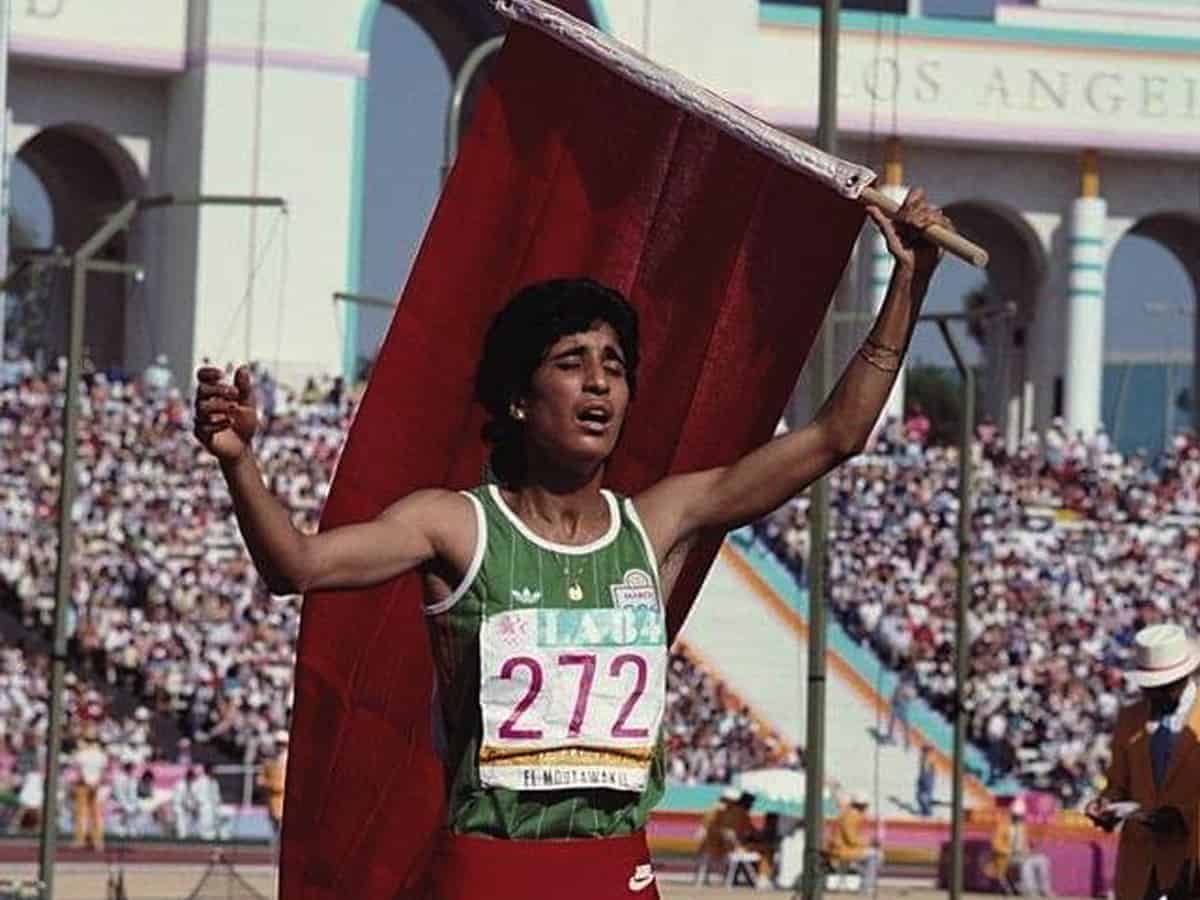
The day was the 8th of August, 1984. The Olympic Games were in progress in Los Angeles and the women’s 400 metre hurdles race was about to begin. The atmosphere was electrifying and the participants were visibly nervous. Indian eyes were on track star P.T. Usha who was widely expected to get a medal. Another strong runner was the six feet tall Judi Brown of the USA who was in Lane 8.
Nobody took notice of a short and thin girl from Morocco named Nawal El Moutawakel in Lane 3. Nobody noticed that there was a quiet confidence in her attitude and a determined look in her eyes. The first time there was a false start and the runners had to be recalled to the starting blocks by the judge. The next time the starter’s gun went off, there was no mistake.
From the beginning, it was a stiff competition. The runners went over the first two hurdles almost together. But half way through the race, Nawal El Moutawakel began to surge ahead. The commentators were shocked. For the first time they noticed the diminutive girl from Morocco in her green vest pulling ahead of the European runners and the tall American.
Steadily and surely, Nawal continued to build up her lead. After the final hurdle, she was well ahead of the rest. Try as hard as they could, they could not catch up with the Moroccan girl. Finally at the end, she threw up her arms and crossed the finish line about four metres ahead of everyone else.
However, for India there was great sorrow because P.T. Usha missed a medal by 1/100th of a second. She finished fourth.
When Nawal breasted the tape, she created history!! She was the first athlete from Morocco to get a gold medal and also the first Arab girl to do so. In 54 seconds, she shattered the image of Arab women in the western world.
People who thought that Arab and Muslim women only stayed behind locked doors and veil would never be able to match their European and American counterparts, were forced to rethink their false ideas. “We did not think that she had such stamina,” said one commentator after the race.
Her stupendous victory paved the way for many Arab women to not only take part in sporting activities, but also compete at the highest level. Before 1984, no Arab woman had ever won a gold medal at the Olympic Games.
The whole country went into celebration mode. The first person to congratulate her was the King of Morocco.
She later told the media: “King Hassan II called me right after I crossed the finish line. Someone took me into a special room and said – the King is on the phone. I picked up the receiver and the King said: ‘I am so proud of you. The entire country is going wild. This victory has made us all so happy and proud of you.’ I was speechless.
I couldn’t believe he was awake and watching. It was in the early hours in Morocco.” To celebrate, he declared that every girl born that day should be called Nawal.
That great victory has inspired hundreds of young Arab athletes and changed many mindsets. Today no one can make light of Arab women who play different sports. They are a force to reckon with.
But for Nawal herself, the victory was a moment of joy as well as sorrow. Her father, the man who had encouraged her in sports, had passed away three months earlier and never witnessed his daughter becoming the first athlete from his country to win a gold medal. “I won the medal for my father. I won because he believed in me,” said Nawal.
That was not the only tragedy she had to deal with. One year after she had won the gold medal, her university teammates died in a plane crash. She retired from sport soon after.
But her King and the government of her country did not forget her. She was made minister of sports in Morocco and joined World Athletics and the International Olympic Committee (IOC) as the first Arab woman to enter high-ranked managerial positions in sports. Today she is an executive committee member of the IOC and is deeply involved in the conduct of the Tokyo Olympics. She is an active member in various IOC Commissions and has been a World Athletics Council Member since 1995.
“We are working hard to make the Tokyo Olympic Games a success. There are new hurdles this time due to the coronavirus issue but we are leaving no stone unturned,” she told the media recently. “Today, when I see women from all countries compete in sports, I feel immense satisfaction,” she said.
Abhijit Sen Gupta is a seasoned journalist who writes on Sports and various other subjects.

